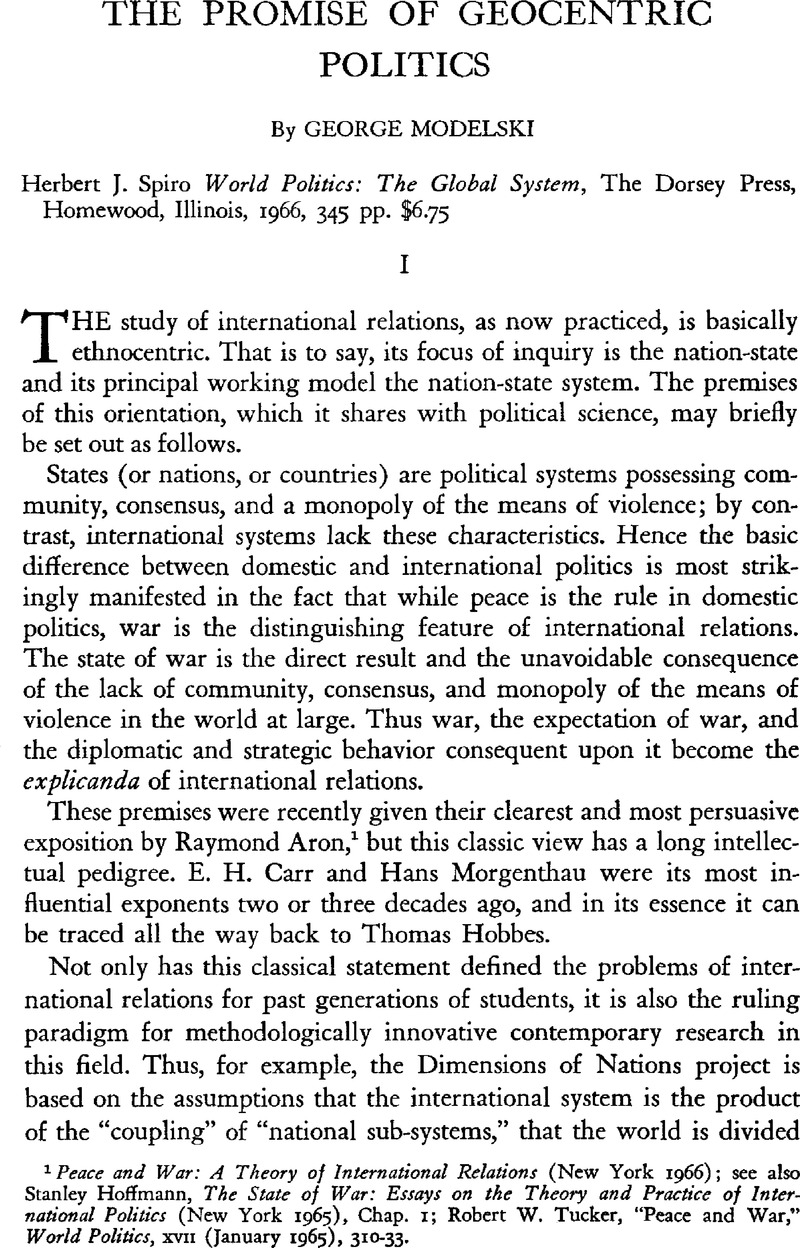Article contents
The Promise of Geocentric Politics
Review products
Published online by Cambridge University Press: 18 July 2011
Abstract

- Type
- Review Article
- Information
- Copyright
- Copyright © Trustees of Princeton University 1970
References
1 Peace and War: A Theory of International Relations (New York 1966Google Scholar); see also Hoffmann, Stanley, The State of War: Essays on the Theory and Practice of International Politics (New York 1965Google Scholar), Chap. 1; Tucker, Robert W., “Peace and War,” World Politics, xvii (January 1965), 310CrossRefGoogle Scholar–33.
2 Rummel, Rudolph, “Indicators of Cross-National and International Patterns,” American Political Science Review, LXIII (March 1969), 128Google Scholar.
3 And reported in Knorr, Klaus and Rosenau, James N., eds., Contending Approaches to International Politics (Princeton 1969Google Scholar).
4 See also Modelski, George, “Simulations, ‘Realities,’ and International Relations Theory,” Simulation and Games (June 1970CrossRefGoogle Scholar).
5 Wight, Martin, “Why Is there no International Theory?” International Relations, xi (April 1960), 35–48CrossRefGoogle Scholar, 62.
6 Spiro's procedural politics brings to mind Confucianism, the political philosophy of the Chinese world state, with its emphasis upon ritual, manners, and correct behavior-the philosophy that grew out of revulsion from the chaos, disorder, and confusion of the period of the Warring States.
7 Spiro, 249, 121; the only document in the appendix to the book is the 1963 treaty to ban nuclear tests; why this particular document and not, say, the United Nations Charter, the Antarctic Treaty, the Austrian State Treaty, the Laotian Neutralization Agreements, or a dozen other equally significant items?
8 See correspondence in the American Political Science Review, LXII (December 1968Google Scholar), 1268, and LXIII (March 1969), 170–71.
9 It was in opposition to the Hegelian “system” that Kierkegaard formulated his existential philosophy.
10 “The Tortuous Evolution of the Multinational Corporation,” Columbia Journal of World Business, iv (January-February 1969), 9–18Google Scholar.
- 3
- Cited by


